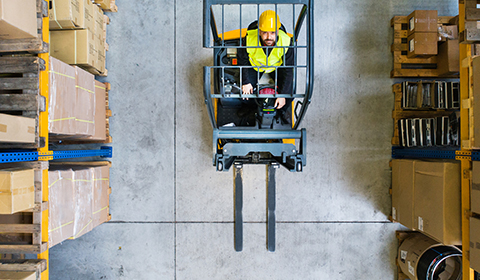Hitting New Heights
Published on 24 January 2019
Published on 24 January 2019

November 11th was another day for Alibaba's record books. It was the Chinese e-commerce giant's annual Singles Day event during which it registered more than the U.S.'s total online sales of Black Friday and Cyber Monday combined.
E-commerce is set to be the fastest growing global retail channel by 2021, accounting for 14% of total retail sales, according to market research company Euromonitor International.
With more consumers going online and avoiding the shops, their demands have challenged supply chains. This has created a need for adequate delivery sites in and around dense urban areas to accommodate the growing consumer demand. In what's known as "the last mile' for e-commerce retailers, multi-story warehouses or industrial sheds are now big drivers for industry real estate development.*
(*Source: CBRE, 2017)
"Our research supports this finding, as the online retail revolution isn't just producing winners like Alibaba and Amazon,' says Maybank. "This game-changing trend is also resulting in big changes to the industrial real estate landscape. We see occupancy rates of 95% for e-commerce and logistic warehouses in Shanghai – and the rising demand for industrial and logistic warehouses continues in key cities across Asia, with Singapore at the forefront.
Data from Real Capital Analytics shows that, globally, investment in industrial and logistic property has doubled over the past five years to US$126 billion. A report by Urban Land Institute and PwC cites investment in logistics facilities as a key trend across Asia Pacific. It was the only sector where investor opinions were optimistic across the board, with investment allocations to the sector rising significantly in 2018.
While investors have largely focused on markets such as Australia, Japan and China, there are emerging opportunities in markets such as India and Southeast Asia.
Southeast Asia's e-commerce scene, while growing, is still in its infancy and fragmented, but the opportunity lies in its potential. The recent signing of the first ASEAN e-commerce agreement in Singapore was seen as big push from the region's governments to galvanize the sector and encourage both the public and private sectors to adopt paperless payments.
A report by the U.S. technology giant Google and Singapore investment firm Temasek Holdings stated the e-commerce market in six major Southeast Asian countries was poised for a boom. The market's internet economy is expected to see exponential growth to more than US$200 billion within a decade.*
(*Source: Singapore's Economic Development Board, 2017)
Growing investor interest in the region's industrial sector is evidenced by the deal activity this year. Some notable examples include Alibaba's logistics unit Cainiao investing to build logistics centers in Kuala Lumpur and Bangkok, Malaysian developer Aspen Holdings' MYR$600 million investment to build a logistics hub in Selangor and Toll Group's recently opened S$228 million logistics hub in Singapore. Meanwhile China's e-commerce logistics player, Forchn Holdings, and Singapore's home-grown supply chain solutions company, YCH Group, are linking up to invest in warehousing and logistics assets in Southeast Asia.
Maybank Group is the first regional banking services group to have physical presence in all 10 ASEAN countries, with branches in all major cities, and has strong capabilities in the region's logistics and real estate market. Maybank's relationship-centric approach commits to building long term, trusted and sustainable partnerships with clients by providing local market insights and regional capabilities to support business needs across Maybank's geographic footprint. As a leading bank in Asia, Maybank Global Banking has a complete suite of product capabilities that provides the flexibility to introduce holistic solutions to its corporate clients across the region.
If you like this article and wish to know more, connect with us here.